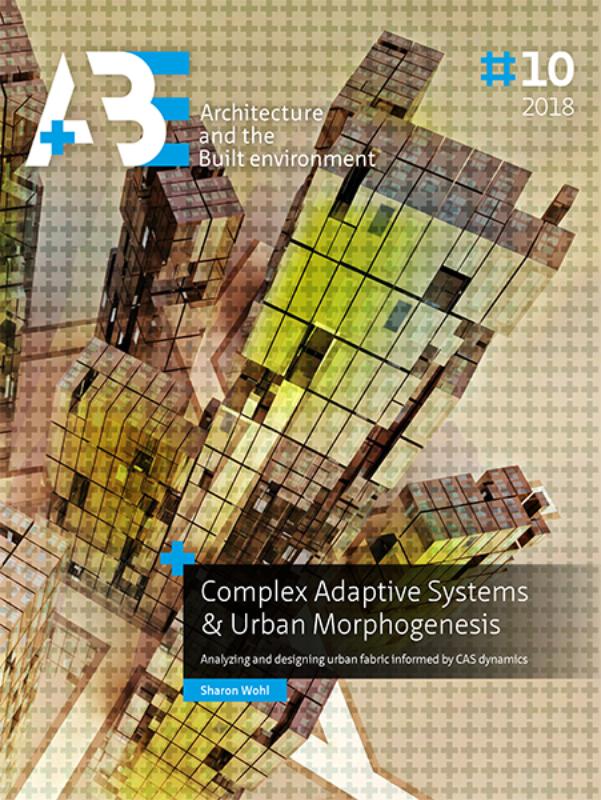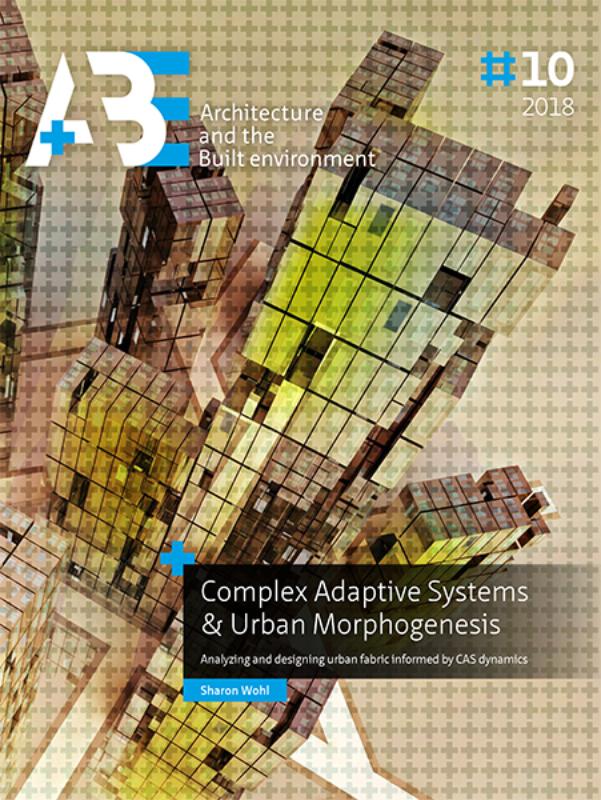- Engels
- Pockets
- kunst algemeen
- bouwkunst, archit.
- COMPLEX ADAPTIVE SYSTEMS & URBAN MORPHOGENESIS
WOHL, SHARON
COMPLEX ADAPTIVE SYSTEMS & URBAN MORPHOGENESIS
29,95incl BTW
Vertrouwd sinds 1927
Persoonlijke aandacht en advies
Vanaf 17,50 gratis verzenden NL & BE
Meer dan 150.000 artikelen online
Omschrijving COMPLEX ADAPTIVE SYSTEMS & URBAN MORPHOGENESIS
What physical and morphological conditions need to be in place within an urban environment in order for Complex Adaptive Systems dynamics arise - such that the physical components (or ''building blocks'') of the urban environment have an enhanced cap
acity to discover functional configurations in space and time as a response to unfolding contextual conditions?
This thesis looks at how cities operate as Complex Adaptive Systems (CAS). It focuses on how certain characteristics of urban form can
support an urban environment''s capacity to self-organize, enabling emergent features to appear that, while unplanned, remain highly functional. The research is predicated on the notion that CAS processes operate across diverse domains: that they ar
e ''generalized'' or ''universal''. The goal of the dissertation is then to determine how such generalized principles might ''play out'' within the urban fabric. The main thrust of the work is to unpack how elements of the urban fabric might be consi
dered as elements of a complex system and then identify how one might design these elements in a more deliberate manner, such that they hold a greater embedded capacity to respond to changing urban forces. The research is further predicated on the no
tion that, while such responses are both imbricated with, and stewarded by human actors, the specificities of the material characteristics themselves matter. Some forms of material environments hold greater intrinsic physical capacities (or affordanc
es) to enact the kinds of dynamic processes observed in complex systems than others (and can, therefore, be designed with these affordances in mind).
acity to discover functional configurations in space and time as a response to unfolding contextual conditions?
This thesis looks at how cities operate as Complex Adaptive Systems (CAS). It focuses on how certain characteristics of urban form can
support an urban environment''s capacity to self-organize, enabling emergent features to appear that, while unplanned, remain highly functional. The research is predicated on the notion that CAS processes operate across diverse domains: that they ar
e ''generalized'' or ''universal''. The goal of the dissertation is then to determine how such generalized principles might ''play out'' within the urban fabric. The main thrust of the work is to unpack how elements of the urban fabric might be consi
dered as elements of a complex system and then identify how one might design these elements in a more deliberate manner, such that they hold a greater embedded capacity to respond to changing urban forces. The research is further predicated on the no
tion that, while such responses are both imbricated with, and stewarded by human actors, the specificities of the material characteristics themselves matter. Some forms of material environments hold greater intrinsic physical capacities (or affordanc
es) to enact the kinds of dynamic processes observed in complex systems than others (and can, therefore, be designed with these affordances in mind).
Specificaties
- MerkBK Books
- GroepKUNST ALGEMEEN (640)
- Barcode9789463660464
- LeverstatusActief
Reviews
0.0/5.0
Gemiddelde uit 0 reviews
Meest behulpzame reviews
Nog geen reviews geschreven


